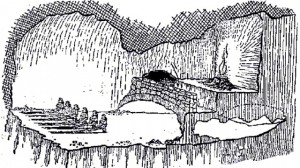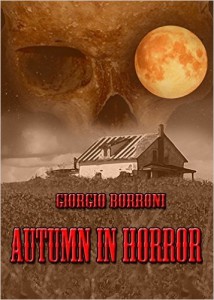SHELBY STEPHENSON
HILDA DOWNER
(August 27, 1956 – )
-
The gravitational pull of our ancestry,
the part of us that killed the Cherokee,
the part of us that is the Cherokee,
we drag through seconds of a concentration camp,
medieval wars in single red gulp.
From “History reflects itself as an old man,”
Bandana Creek
The melting pot aglow,
coal and feldspar,
mastectomies of the mountains
Native Americans revered as gods,
what if your Mohawk nose
does not serve up the American Pie?
From “America, the Beautiful,” Sky Under The Roof
Hilda Downer’s come out with another book (Bottom Dog Press, Huron, Ohio); I look
back almost four decades to an event I loved, Hilda Downer’s Bandana Creek, a startling, tough gift from Charlene Swansea, at Red Clay Books. Swansea could not write a “Letter of Regret,” regarding Hilda’s poems; Swansea’s mind was set. Charmed by the poet’s talent, she took the book and published it.
Now I hold Downer’s Sky Under The Roof. I see Reba’s here again, Reba Vance. Hilda writes, “my best friend all of my life.” “Towheads”: “Reba and I observe the way we used to stand at eye level with daisies, stepping stones up and down for walking on air as far as we could see
across the field. Butterflies test landed tiger colors for an instant takeoff.”
In the Introduction to Bandana Creek, Charlene Swansea keeps her pitch: “Hilda spent much of her childhood in solitary exploration of the blue Appalachian Mountains. Her wonder at the
co-existence of beauty and cruelty in Nature watered her secret writings like a spring.”
Would not we readers all be Voyagers sailing with Hilda Downer’s inspiration and imaginative guidance.
Sky Under The Roof starts in mouthfuls of folly: “Picking Cherries up Howell Hollow”:
“Unlike hybrids darkly marooned in stores, / these cherries glowed a delicate red from within – /
translucent white when unripe. / Little Rudolph noses, their guidance / balanced us on that tight wire, pulling us / to higher branches to reach more light.”
Touch and taste – smell – and seeing, hearing: “My tongue felt for the seam of the pit / long
after the last rags of fruit had weathered. / Near sandy ruffles in the dirtroad, / I smelled where a spring poked its finger out the bank. / Then, I spit out all possibility / deep from the dark / deep in the mountains / deeper still in childhood / attempting to see into Who I have and have not become.”
“A woman is segmented as an ant,” Downer writes in Bandana Creek: “I wait as a woman waits. / I like my own smell. / No man has known me beautiful / when I am alone and woman, / still or stirring, / a drawing power in the shoulders, / waist hidden from vertical glance, / breast to hip.”
And from “What is Under my Dress” (Sky Under The Roof): “I might lift the hem on occasion.”
“What Is Under My Dress” seems too long to quote. I choose these words as notes from the poem: “An editor once summed up / my poetry as merely listing, / told me to put that under my belt, / and would I drive with him to Vermont. / Here’s another list: / I don’t wear a belt; / I wear a vintage prom dress; / I refuse to face life like a man.” She does not: “and I’ll make up my own mind, / if there’s any room left, /about what to put under my dress next.”
Bandana Creek’s last poem is a hymn to jars: “Looking up from inside a jar, the stars / Are holes”:
Hilda Downer: “I want to call mama / when my mother strode / down the gravel driveway / like a man.” These lines are my close companions. I want to call my mother, too, through the oaktrees on top of my Paul’s Hill; like Hilda Downer’s Bandana Creek, a stream the mountains sing, I long for breath to keep her words “wondering why I’m not satisfied, / when all I ask for is the thirst and the water.” I am drawn to my own fishing holes. Deep down in wonder, experience orders change to build a bridge to another side. Far from Bandana Creek, I feel like a terrapin coming up for air at the Rock Hole on my Middle Creek.
What else can I say to show more truly the intricacies of the cruel, sweet beauty of
Hilda Downer’s gift for lines, her ways her pages move words like “the blue fixed waves
of mountains” which turn in her eyes and on her tongue to “the only ocean we had ever seen, and even a scant shell,” she writes, “was rare”; so “we listened to the ocean from a mason jar.”
When you consider that some of us write rhymes; others long and thirst for what they do not know, you may imagine Hilda Downer, this girl who becomes a woman, and dedicates Sky Under The Roof “to my sons, Branch Richter and Meade Richter” (artist Branch did the cover-art, picturing Hilda with a child on her back; Meade’s a fiddler − his band − The Sons of Bluegrass). The mother relishes the artistry of her sons.
Poets may long for difference and sameness. Consider “Jars” – from the last quarter of Sky Under The Roof: “There are no words that work, not under this sky, but maybe – above – ”: (That’s her inscription to me on the title page of Sky Under The Roof); in “Jars” she jots − “City boy who raised his jar to Tennessee – / can anything manmade be more lovely than a singular jar, / refractions like stilts of heaven through the morning / of an invisible forest?”




